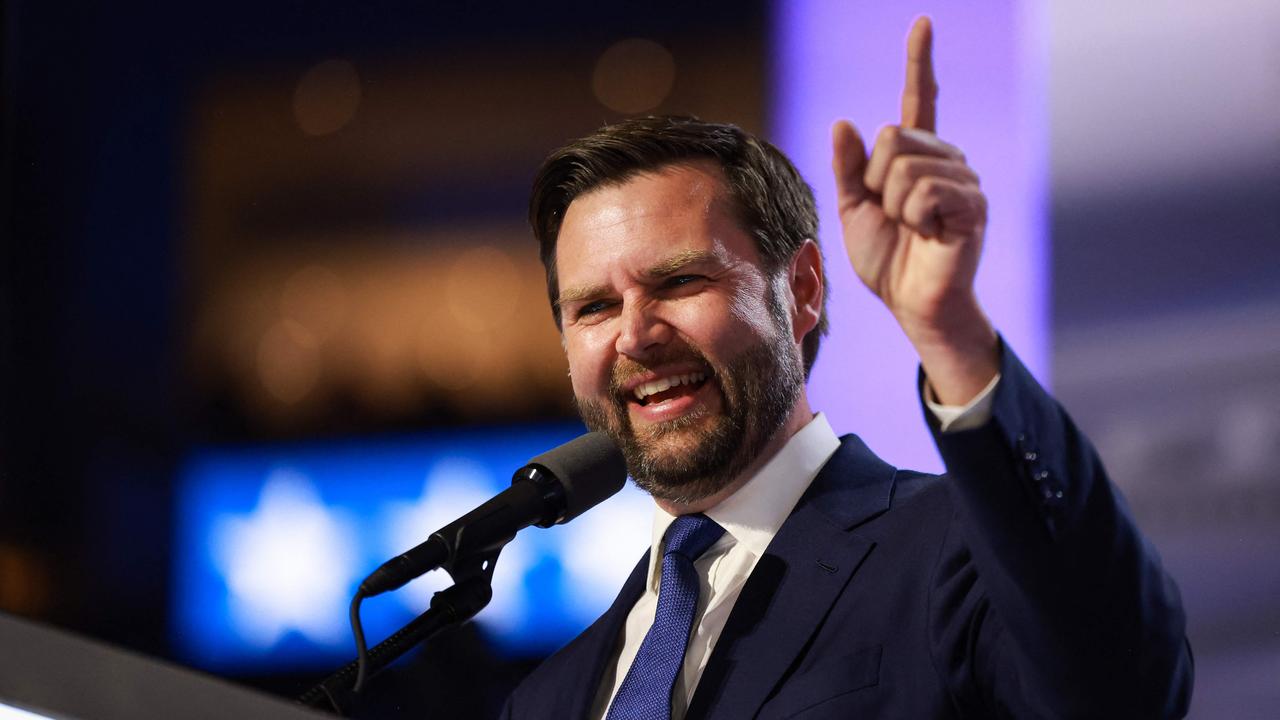JD Vance hits all the right notes by playing it safe at convention


The first-term senator from Ohio stuck to lofty rhetoric about fighting for American jobs and steering clear of the isolationist foreign policy stance he’s become well known for.
In a speech before an adoring crowd of party faithful, the 39-year-old senator launched himself onto the American and global political stage on the third night of the Republican National Convention, vowing to “put Americans first” should he and his mentor Donald Trump win in November.
His speech was a reminder of how far the Republican Party has embraced policy territory once occupied by the Democrats, including a promise to be a “leader not in pocket of big business but one who answers to the working man, union and non-union alike”.
“We’re done pandering to Wall Street, we’ll commit to the working man,” he declared.
Vance said he’d fight for “the autoworkers in Michigan, proud of American craftsmanship, (who are) wondering why out-of-touch politicians are destroying their jobs”.
Bernie Sanders, the left-wing senator for Vermont who ran for president in 2016, would have been proud.
As Trump looked on smiling, Vance railed against Wall Street and Washington elites for exporting jobs to China and ignoring the socio-economic crises that have befallen millions of American families in the rust-belt states of Ohio, Michigan, Wisconsin and Pennsylvania and elsewhere, where life expectancy has been steadily falling for years.
Not a single mention of cutting taxes or reforming social security or Medicare could be heard, a reminder of how the Republican Party of the era of Ronald Reagan and the two George Bushes, which advocated free trade and reduced public spending, has faded away as a force on the American right in the age of Trump.
If that shrinking wing of the party took any solace from Vance’s speech, it would be his notable avoidance of any mention of NATO and the Russia-Ukraine war, where the senator has drawn criticism from establishment Democrats and Republicans for espousing the US take a much diminished role so that it can save its firepower for any confrontation with China.
Few argue that the globalisation and free-trade agenda pushed by all Western governments for over a generation has not enriched the educated, urban households at the expense of those in regional and rural areas, especially those in manufacturing. But this will be a very hard egg to unscramble.
Vance didn’t utter the word tariff, or indeed reveal any policy specifics, in his 37-minute speech, but it was very clear he supported Trump’s plan to impose a 10 per cent tariff on all imports into the US. Whether that’s ultimately possible, let alone beneficial overall, remains to be seen.
It’s not hard to imagine both major political parties in the US splitting in the coming years, given the prevailing divisions within them have become so much greater than those between them.
It was little surprise a hefty part his remarks were devoted to praise of Trump, who’s favour has enshrined the author of the bestselling memoir the Hillbilly Elegy as the presumptive heir to his powerful Make America Great Again movement and likely candidate for the 2028 presidential election should the Republicans win in November.
“Prior to running for president he was one of the most successful businessmen in the world, he had everything anyone could have wanted, (but) instead of choosing the easy path he chose to endure abuse, slander and persecution, and he did it because he loves his country,” Vance said.
“They said he was a tyrant, that he must be stopped at all costs; how did he respond, he called for national unity, literally right after an assassin nearly took his life.”
It was a long way from the days when he called himself a never Trumper and worried aloud Trump might be “America’s Hitler”. But if Vance’s speech wasn’t necessarily a political or rhetorical triumph, it succeeded in one important respect: it didn’t overshadow or contradict Trump in any way, a critical requirement if the two are to work successfully together in the White House for four years.





JD Vance, the Republican Party’s freshly minted vice-presidential candidate, played it safe in the most important speech of his short political career in Milwaukee, Wisconsin, on Wednesday night (Thursday AEST).